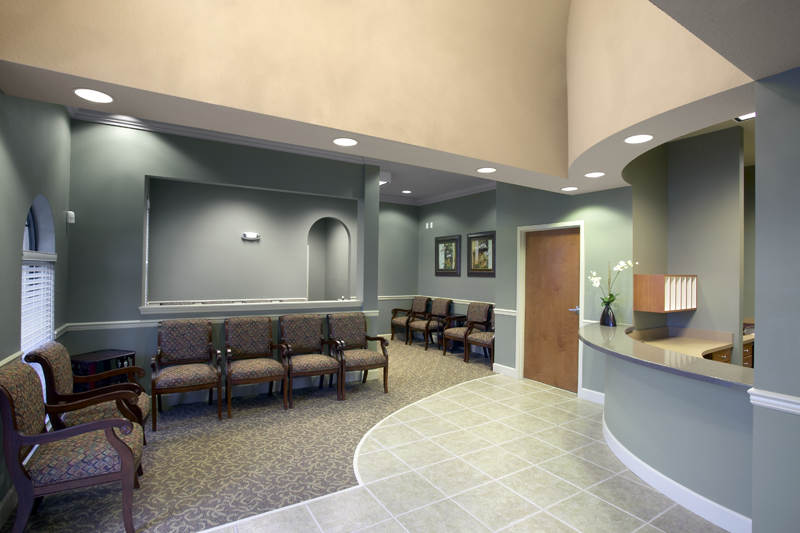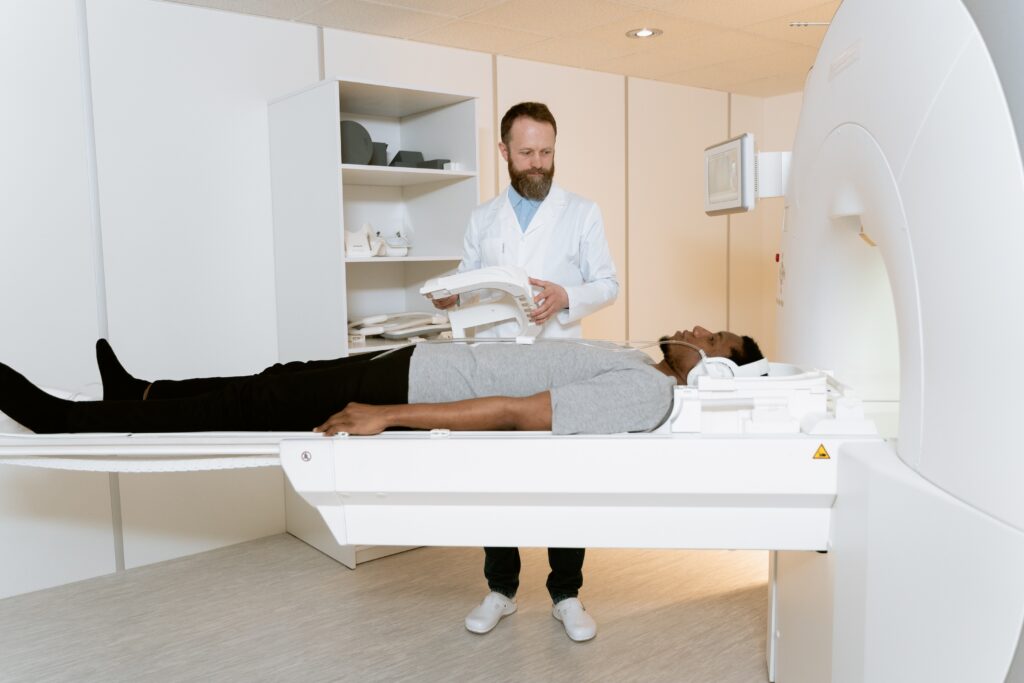For many of us who have struggled with an addiction, we know how all-consuming it can be.
We also know that it can feel as though there may never be a path out.
I knew for years that my substance abuse was out of control. I knew I needed help, but I didn’t know what path to follow.
And – even if I had known the right path – I was too scared to follow it. Too scared to let go of the alcohol and opioid addiction I had developed.
Too scared to let go of the two things that made me feel like I was in control.
Even though my life had become the opposite.
Sure, there were nurses and doctors who had handed me pamphlets for various inpatient and outpatient treatment centers as my opioid use disorder and alcohol use disorder became more concerning and my physical health began to deteriorate.
There were therapists and others that were part of the mental health services administration who had tried to make my family do an intervention to get me to see how deep my alcohol and opioid dependence had become.
There were even colleagues who had started to question some of my work decisions despite the fact I was at the top of my career and had only received promotions and raises over the course of two decades.
My world was slowly crumbling down around me.
And then one day…the crumbling wasn’t so slow anymore.
The Beginning of the End…
Hitting rock bottom with my alcohol abuse and opioid addiction was the worst thing that ever happened to me.
And, whether you believe this or not, it was also the best thing.
Rock bottom came when I lost that job that I thought I was doing so great at and I lost my wife (who I thought was oblivious to how bad my alcohol and opioid addiction had become.)
Suddenly I was homeless, broke, and alone. My life had finally spiraled out of control, and even getting drunk and/or high no longer made my pain go away.
It was then that I realized that this demon had beaten me. That my substance use disorders were bigger than me.
That no matter what I did, or who I fooled, or how hard I tried to control it, I was a full-blown addict.
My substance abuse had won.
…And Then the Beginning Again
I’m not going to lie to you…the road to recovery is just as miserable as the substance abuse addiction itself.
It’s why so many of us don’t make it all the way to the end of it.
Recovery from substance abuse is lonely. It’s heartbreaking. It’s full of missteps and pain and boredom and fear.
Recovery from substance abuse is a road less traveled. But for anyone who truly wants a life free of the misery that a substance abuse disorder will always eventually bring to their life, then the recovery road is a necessary one.
It’s a road that is going to require courage, commitment, and support. It’s a road that is going to require you to find the right fork and take it.
For me, it was a road that led me to a medically assisted treatment center.
What is a Medically Assisted Treatment Center?
A medically assisted treatment center is a facility that specializes in helping individuals recover from substance abuse, particularly opioid addiction, by using medication and other therapeutic interventions under the supervision of medical professionals.
Medically assisted treatment centers and opioid treatment programs aim to reduce withdrawal symptoms, cravings, and the risk of relapse during the early stages of recovery.
These programs also provide behavioral therapies, counseling, and support services to help patients address the underlying issues that contributed to the opioid use disorders in the first place and develop coping skills to maintain sobriety in the long term.
Medication-assisted treatment (MAT) is a standard practice in treating opioid addiction and often involves the use of FDA-approved medications.
These medications should also be combined with counseling and behavioral therapies to address the psychological and emotional aspects of addiction.
Medication assisted treatment centers provide a safe and supportive environment for patients to receive MAT, with medical professionals involved in the constant care and in the monitoring of their progress, and adjusting the treatment plan as necessary.
Therapists are also involved in the mental health services administration side of the patient’s time in the opioid treatment programs.
With the right team of medical and behavioral therapy professionals involved, a person who is struggling with any sort of opioid use disorders can truly have a fighting chance of overcoming their substance use disorders and go on to live a healthy, productive, and drug-free life on the other side.
But Not Everyone Sees This Right Away.
For some of us (myself included) I spent way too much of my life convinced that a medication assisted treatment program was not going to be for me.
Why the Resistance to a MAT Program?
When people hear the words “medically assisted treatment center” they often freeze. And then run the other way.
Why is this?
For many people who are struggling with a substance use disorder, particularly an opioid addiction, the idea of seeking treatment at an IOP Program (Intensive Outpatient Program) or a MAT program (Medically Assisted Treatment) can make them feel nervous about the level of intensity and/or the involvement of the medical community in their opioid use disorder and treatment plan. Often these people feel like they are giving up control of their own ability to self-regulate or admitting defeat by seeking help from a medical professional.
For me, these were all some of the reasons I was hesitant to commit to an opioid addiction treatment program.
On top of that, the fear of going to a medically assisted treatment center was intensified when I began to worry about how I would be judged, what type of control would be placed over me and whether or not I’d have any say in my treatment plan.
But the biggest fear of all was the withdrawal symptoms.
I was terrified that no one would do anything to prevent them and that the mental and physical pain would end up being so excruciating and unbearable that I wouldn’t be able to handle it.
And that ultimately, I would fail.
Luckily, that’s when I discovered Better Days.
Better Days Treatment Center: The Breakthrough for Me
When I finally hit rock bottom, I knew I had no choice but to find a treatment center that could help me with my alcohol use disorder as well as my opioid use disorder.
I knew I wouldn’t be able to quit one without quitting the other.
But I also knew that the idea of giving them both up was absolutely terrifying to me.
When searching for a facility that had a strong reputation for treating people like me, I discovered Better Days, a substance use disorders treatment center in California.
And from the moment I called, I haven’t looked back.
Everything that happens at Better Days is underlined by what they call their “reality-based treatment approach.” It’s a highly practical method that will provide you with solutions to problems that you will actually face in your everyday life.The reality-based model uses your lived experiences as teaching opportunities. You’ll have a chance while at the facility to explore how you can respond to different impulses and situations differently so that you can begin to live a different life than the one you have lived until now.
A healthier, sober lifestyle will be yours by the time your treatment program at Better Days ends.
What Makes Better Days Successful? 5 Key Components to Their Treatment Approach
Though there are thousands of substance use disorder treatment facilities across the United States, you must find the right one for you. No two programs are exactly the same and no two people are struggling with exactly the same thing.
Here are 5 key reasons why I think Better Days is the best choice for someone who is struggling with an opioid addiction:
Comprehensive Medical Assessment: When a person first shows up at Better Days, a comprehensive medical assessment is conducted to determine the individual’s physical and mental health status, medical history, substance use patterns, and any co-occurring disorders. This assessment helps in developing an individualized treatment plan that addresses the unique needs of the person.
Medication-Assisted Treatment: Medication-assisted treatment (MAT) is a key component of opioid treatment at Better Days Treatment Facility. MAT is the use of medications, such as methadone, buprenorphine, and naltrexone, along with counseling and behavioral therapies, to treat opioid addiction. These medications help in reducing withdrawal symptoms and cravings, making it easier for individuals to focus on their recovery.
Individualized Treatment Plans: At Better Days Treatment Facility, treatment plans are individualized to meet the unique needs of each person. The treatment plan is developed based on the comprehensive medical assessment and is reviewed and updated as needed throughout the treatment process.
Counseling and Behavioral Therapies: Counseling and behavioral therapies are essential components of opioid treatment at Better Days Treatment Facility. These therapies help individuals to identify and change negative thought patterns, develop coping skills, and build a support system for long-term recovery.
Supportive Environment: A supportive environment is crucial for successful opioid treatment. Better Days Treatment Facility provides a safe and supportive environment for individuals to focus on their recovery. The facility offers 24-hour medical supervision, group therapy, family therapy, and aftercare planning to support individuals in their recovery journey.
As I said before, everyone’s journey to a life without addiction is going to be a personal one. But finding the right treatment center is going to be a crucial part of that journey.
Make sure you choose carefully.
If you are ready to learn more about what Better Days Treatment Center could do for you, reach out to them today. There is always someone waiting to take your call.
There is always someone ready to give you the hope you need to take that next step and know you can succeed.





